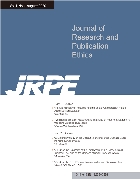- 권한신청
- E-ISSN2733-7146
- KCI Candidate
Identification of Authors and ethics of Research based on KODISA Case
SU, Shuai (Shandong University of political science and law China)
YOUN, Myoung-KIl (College of Health Industry, Eulji University)
Abstract
Purpose: The author wants to specify scope of research, identify without giving burden, prevent unfair identification of the author, admit of production of the outcome, enact rules of identification, and build up foundation of development. Also, this study defines scope of publication of outcome of research to prevent unfair identification of authors and admit of them. Research design, data and methodology: The study described literary research, standard research, phenomenon research, and empirical result without methodologies, statistical analysis and scientific test and investigated operation system of KODISA cases. Results: At publication of findings of the research, researchers shall identify the ones of production of the finding to allocate help of the research. Conclusions: Scientific journals shall be controlled to develop ability and to grow up and have a system. Researchers shall give direction of other scientific journals. The study made efforts to be a model. KODISA Edition Team shall make an effort to keep and develop. So far, no regulation of identification of authors has produced disturbance so terminologies should be uniformed. Researchers shall keep rules of identification of authors to uniform and regulate identification of authors, conditions of authors, and order and correspondent authors. KODISA enacted rules of identification of authors for the first time in Korea to develop science.
- keywords
- Identification, Authors, Ethics, Research, KOSISA Case
- 다운로드 수
- 조회수
- 0KCI 피인용수
- 0WOS 피인용수














